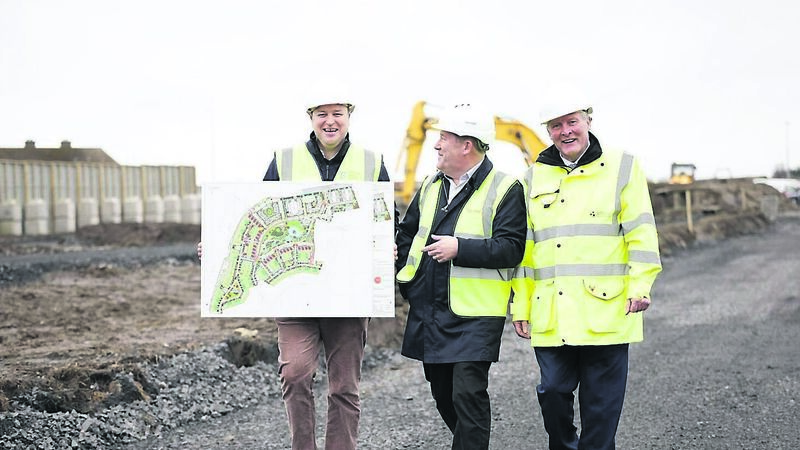The housing crisis is not over, but the new year will bring progress

Glenveagh Properties PLC chief executive Stephen Garvey, Housing Minister Darragh O’Brien, and Dublin City Council CEO Richard Shakespeare at the sod turning marking the start of construction of over 850 energy-efficient new homes at Oscar Traynor Woods in Coolock.









